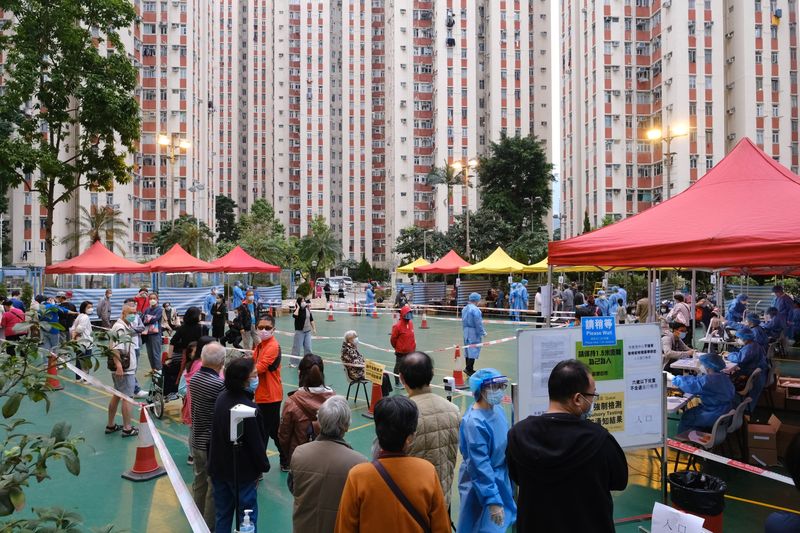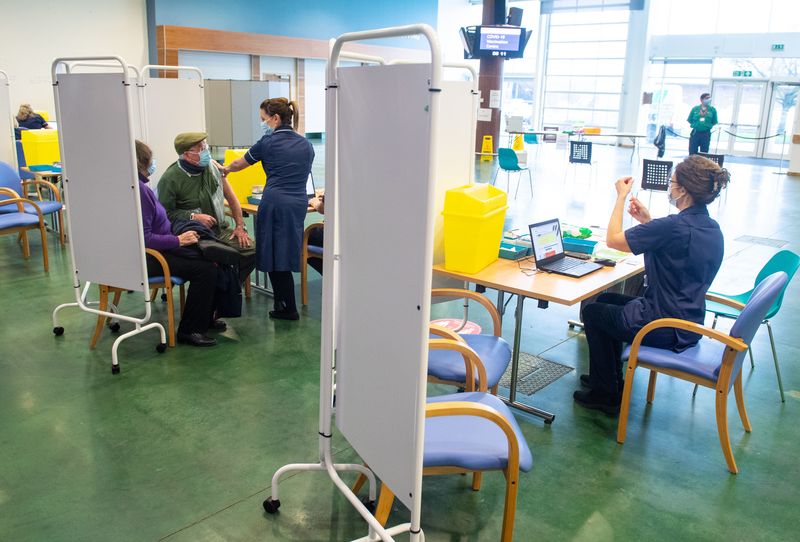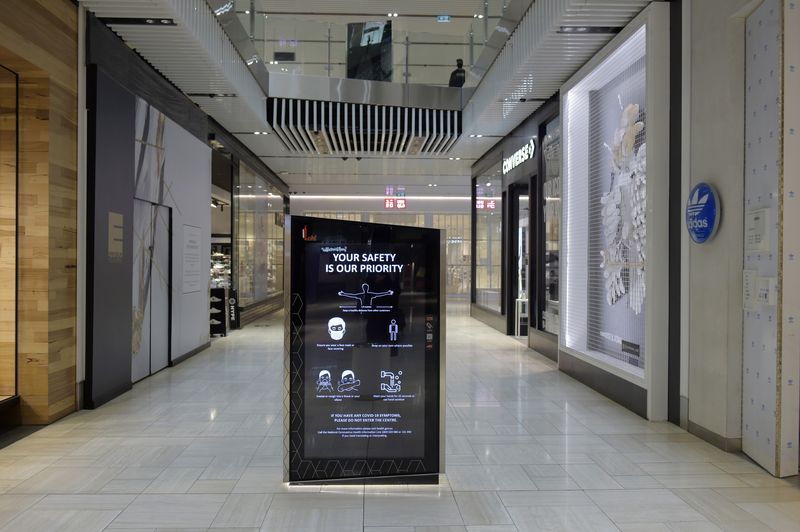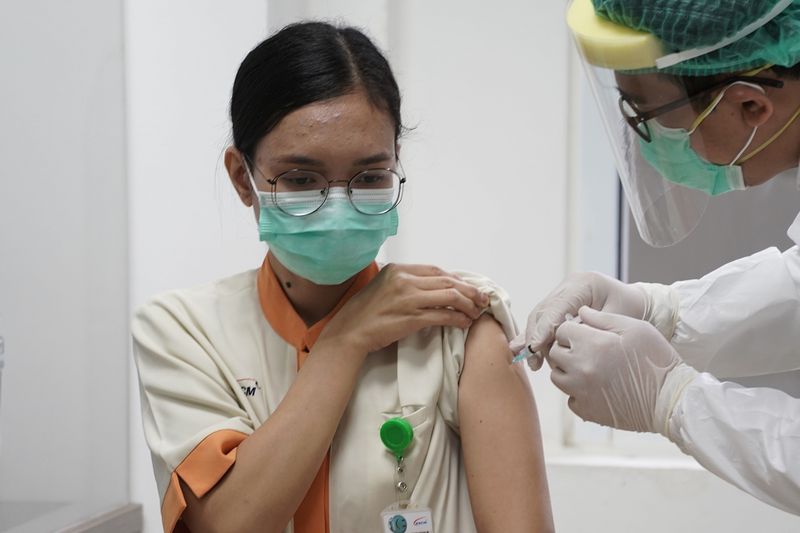사회 일반 백신 도입 늦었다고? 외신들 “한국의 신중함 배우지 않으면 재앙”
페이지 정보
작성자 허재현기자 댓글 0건 조회 17,355회 작성일 21-01-17 19:23본문
해외 언론들이 코로나 백신 구입에 신중한 한국·싱가포르 등 아시아권 국가들을 조명하고 나섰습니다. 백신 구입이 늦었다면서 우리나라를 “백신 후진국”이라고 비판하고 있는 국내 언론과는 다른 태도입니다. <블룸버그> 통신과 <가디언>의 관련 기사를 번역하여 공개합니다. 중요한 내용은 다음과 같습니다.
1.왜 늦을까? 코로나 백신을 기다리는 나라들의 속사정들 (2021년 1월8일 가디언)
-한국 등 아시아 국가들의 백신 도입 지연은 의도적이다. 서구권 국가에서 코로나 바이러스 예방접종이 수백만명 대상으로 이뤄졌고, 큰 부작용은 없었지만, 한국 등은 이들에게서 받을 귀중한 데이터를 기다리고 있는 중이다.
-호주의 의사 제니퍼 마틴 교수는 “보건 당국이 (서구권 국가의) 백신 데이터를 보고 ‘유럽인들에게는 괜찮아 보이지만 이 백신이 원주민과 아시아 사람들에게 어떻게 영향을 미칠지에 대해서는 상당히 걱정하고 있다. 조금만 기다리면 더 많은 정보를 얻을 수 있는데 왜 사람들을 위험에 빠트리도록 백신 도입을 서두르는가?”라고 말했다.
-시드니 대학의 전염병 전문가인 로버트 부브 교수는 “화이자와 바오오테크사에서 개발한 mRNA 백신은 지금까지 개발된 적 없는 방식의 백신이다. 사전에 이 백신이 몸에 잘 맞는지 감시하는 것이 최우선이 되어야 한다”고 말했다.
2.왜 많은 아시아 국가들은 백신 도입에 신중한가 (2021년 1월15일 블룸버그)
-홍콩 당국에 보건 자문을 하는 의사인 람 칭초이는 “다른 나라들이 백신접종을 어떻게 하고 있는지 보는 것은 나쁜 일이 아니다. 부유하지 않은 나라들이 전염병을 없애기 위해 가장 빠른 대처법을 찾아야만 하는 것은 안타까운 일이다”고 말했다.
-호주 그리피스 대학의 바이러스 학자인 아담 테일러는 “백신 도입을 늦추는 국가는 먼저 백신을 유통하기 시작한 국가들로부터 경험을 배울 수 있다. 백신의 안전성에 대한 정보가 많을 수록 자신감은 높아질 수 있다. 화이자와 모더나 백신에 사용된 기술은 이전에 인간에게 사용된 적 없으며, 안전해보이지만 데이터는 많을 수록 좋다”고 말했다.
-일부 국가에서는 백신 제약회사들이 (부작용에 대한) 책임면제를 강요하고 있다는 사실을 우려하고 있다. 한국의 박능후 보건복지부 장관은 “전염병의 이해할 수 없는 성격 탓에, 각 국가들이 제약회사들과 불공정한 계약에 노출되어 있다. 한국은 백신의 위험을 확인하기 전에 백신과 관련한 계약을 서두를 생각이 없고 그럴 위급한 상황도 아니다”고 말했다.
-서구권 국가들보다 아시아 국가들의 백신도입이 늦는 또다른 이유는, 집단면역을 위해서는 빠른 시간 안에 충분한 사람들이 접종을 해야 하는데 현재 백신에 대한 대중의 신뢰가 크지 않기 때문에 되레 성급한 백신 접종은 많은 국민을 위험에 빠트리게 할 수 있기 때문이다.
-싱가포르 국립 대학교 서스위혹 스쿨의 제레미림 부교수는 “정부가 백신을 비싸게 주고 구입해놓고 의미있게 사용하지 못하거나 백신 유통기한을 지나버리면, 이것은 재앙이 될 것이다. 얼마나 빨리 백신을 도입하는가는 중요하지 않다. 얼마나 빠르고 강력하게 백신 접종을 하느냐가 핵심이다”고 말했다.
1.
Why the delay? The nations waiting to see how Covid vaccinations unfold (가디언)
2.
Why Many Asian Countries Are Being Cautious on Vaccines (블룸버그)
The nations quickest to enact social distancing and contact-tracing systems have mostly kept Covid-19 in check, but their citizens now find themselves lagging in receiving the shots needed to finally end a pandemic that has devastated millions of lives.
Governments from Japan and Australia to Hong Kong and South Korea are taking their time before granting regulatory approvals for vaccines, in stark contrast to the Western nations that have rushed to inoculate populations.
That cautious approach may seem strange given the urgency to resume normal life, but low infection rates mean that Asian governments are able to wait to see how the unprecedented vaccination drives play out elsewhere. Still, the strategy runs the risk of leaving them economically disadvantaged against places that botched containment but rushed out vaccination.
In New Zealand, which has the top spot on Bloomberg’s Covid Resilience Ranking of major economies that have best fought the pandemic, the main opposition party asked Prime Minister Jacinda Ardern to explain why the country “has fallen behind the rest of the world with its vaccine program.” In South Korea, an editorial in newspaper Hankyoreh said “we cannot forever ask people to stop their daily lives and endure the economic pain.”
But officials are defending their pace as the safer approach, and one that they’ve earned. “It’s not a bad thing to sit back a bit and see how others are doing,” said Lam Ching-choi, a medical doctor and a member of the Executive Council that advises Hong Kong’s leader. “I’m totally sympathetic where they don’t have the luxury and they need to do it in the quickest manner to kill the epidemic.”
Hong Kong, currently reporting a few dozen Covid-19 cases daily and with a total death toll of 161 since the pandemic began, has yet to approve a single vaccine as it awaits more detailed clinical trial data ahead of a planned vaccination drive to start in February.

Australia, which shut its border to non-residents when the pandemic began and has instituted strict lockdowns when cases emerge, expects to approve the vaccine developed by Pfizer Inc. and BioNTech SE by the end of January and the AstraZeneca Plc vaccine next month, with shots also beginning in February.
By contrast, the U.S. and U.K. have already administered nearly 14 million shots in total after expedited approvals last month, while Israel has delivered 2 million doses, or 22 shots per 100 people.
Vaccine Anxiety
Asian officials and health experts remain anxious because it’s the first use of this particular mRNA technology for vaccines, which instructs the human body to produce proteins that then develop protective antibodies. It’s also the first global vaccination effort undertaken at such great speed.
Although millions have gotten jabs without incident, there have been some allergic reactions, including anaphylactic shock and incidents like the death of a health worker 16 days after receiving the Pfizer shot, though a link has not been established.
“This extra time will allow those countries to learn from the experience of countries that have commenced distribution,” said Adam Taylor, a virologist at Griffith University in Australia. “The more information you have on the process of distribution and the safety of the vaccines, the more confidence you have in your own rollout. The technology used for the Pfizer and Moderna vaccines has never been used before in humans and although safety looks good, the more data the better.”
Some countries are concerned over the fact that pharmaceutical companies have been granted legal immunity in rushed negotiations. South Korean Health Minister Park Neunghoo said countries have been forced into “unfair contracts” with these firms due to the “incomprehensible” nature of the pandemic. Seoul plans to administer shots in February.
More Than 32.4 Million Shots Given: Covid-19 Vaccine Tracker
“It is nearly universal around the world that extensive immunity from liability is being demanded” from the companies, Park said at a recent press briefing, noting that Korean officials need time to scrutinize safety data closely since companies won’t take responsibility for any mishaps. “Rushing to vaccinate populations before we identify risks is not so necessary for us.”

Herd Immunity
Such explanations may not sit well with the citizenry of Asian economies that were hit by the virus before the West, and have therefore spent nearly a full year wearing masks, staying at home and abiding by strict social distancing rules.
“Everyone is trying to survive and I think they should get the vaccines as soon as possible to the people who are comfortable taking it,” said Aron Harilela, Chairman of Harilela Hotels Ltd. and former Chairman of the Hong Kong General Chamber of Commerce. “You can keep on worrying that you make the wrong decision, but the whole world is taking vaccines, because all economies are gonna be on their knees if we don’t open up.”
In New Zealand -- which closed its border early and snuffed out the virus -- the opposition has been critical of the country’s slow vaccination timeline, citing a global resurgence of the virus and the emergence of more transmissible variants. New Zealand’s rollout is slated to begin in the second half of 2021.
Deputy Prime Minister Grant Robertson denied that the country is merely being “polite,” and said that other countries with rising death tolls have priority. “We’re doing every single thing that is possible to get the vaccines here as soon as we can,” Robertson told NewstalkZB this week.

Botched Rollout
Another reason for proceeding slower than desperate Western nations is that they don’t want a botched rollout to undermine public confidence in the vaccines, potentially jeopardizing the ability to inoculate a sufficient percentage of the population for herd immunity.
That’s particularly important among Asian populations where confidence in vaccines is already low. A World Economic Forum-Ipsos survey on global attitudes towards Covid-19 vaccines found that the percentage of respondents who agreed with taking a vaccine dropped up to 9 percentage points from October to December in countries including Korea and Japan, which is now posting record numbers of new cases and is slated to start inoculations in late February.

A Bitter Vaccine History Means Hurdles for Japan’s Covid Fight
“Governments charging in too early when they buy vaccines at great cost and find they cannot use them meaningfully or they are expired -- that could be a disaster,” said Jeremy Lim, associate professor at the National University of Singapore’s Saw Swee Hock School of Public Health.
Officials have also tried to lower expectations, arguing that rollouts will not immediately allow restrictions to be lifted since it will take the better part of a year for enough people to be vaccinated for conditions to become safe again. Most public health experts suggest around 80% of the population needs jabs before anything resembling herd immunity is achieved.
Lim added there’s no point rushing to get to 65% of the population, but stumbling along the way and being unable to vaccinate the remaining 15%.
“It doesn’t matter how fast you are,” he said. “It’s how strong you finish.”
— With assistance by Youkyung Lee, Matthew Burgess, and Tracy Withers
번역-왜 많은 아시아국가들은 백신도입에 신중한가
사회적 거리두기 및 확진자 추적 시스템을 가장 빨리 만든 국가들은 대부분 Covid-19를 통제했지만, 이제는 시민들이 수백만 명의 목숨을 앗아간 전염병을 종식시키는 데 필요한 예방 접종에서 지체되고 있습니다.
일본과 호주에서 홍콩과 한국에 이르는 정부는 백신에 대한 규제 승인을 승인하기 전에 시간을내어 백신 접종을 서두르는 서구 국가 들과는 완전히 대조적입니다.
정상적인 생활을 재개해야하는 시급함을 감안할 때 이러한 신중한 접근 방식은 이상하게 보일 수 있지만, 코로나 감염률이 낮다는 것은 아시아 정부가 전례없는 예방 접종이 다른 곳에서 어떻게 진행되는지를 볼 때까지 기다릴 수 있음을 의미합니다. 그럼에도 불구하고이 전략은 코로나 확산을 막지 못해 백신접종을 서둘렀던 나라들에 견줘 경제적으로 뒤쳐질 리스크를 안고 있는 전략이기도 합니다.
블룸버그가 진행한 전염병에 가장 잘 대처한 주요 경제 국가의 '코로나19 탄력성' 조사순위에서 1 위를 차지한 뉴질랜드에서 야당은 Jacinda Ardern 총리에게 "왜 뉴질랜드가 백신도입과 관련해 나머지 국가들에 뒤쳐진 것인지 설명해달라"고 요청했습니다. 한국의 한겨레신문 사설은 “사람들에게 일상 생활을 멈추고 경제적 고통을 견디도록 영원히 요구할 수 없다”고 말했습니다.
그러나 보건 관리들은 더 안전한 접근 방식과 그들이 얻은 방식으로 자신들의 백신 관련 정책의 속도를 옹호하고 있습니다. 홍콩 당국에 자문을 제공하는 집행위원회 위원이자 의사인 Lam Ching-choi는 “조금 앉아서 다른 사람들이 어떻게하고 있는지 보는 것은 나쁜 일이 아닙니다.", "저는 그들이 부유하지도 않으면서 전염병을 없애기 위해 가장 빠른 방법으로 조처해야 하는 것에 대해 완전히 좀 안쓰럽습니다"라고 말했다.
현재 매일 수십 건의 Covid-19 사례를보고하고 전염병이 시작된 이후 총 사망자 수는 161 명에 달하는 홍콩은 계획된 백신 접종을 시작하기 전에 더 자세한 임상 시험 데이터를 기다리고 있기 때문에 단일 백신을 아직 승인하지 않았습니다.
전염병이 시작되었을 때 비거주자들과의 국경을 폐쇄하고 사례가 발생하면 엄격한 봉쇄를 실시한 호주는 1 월 말까지 화이자 및 바이오 엔텍 SE가 개발 한 백신과 다음 달에 AstraZeneca Plc 백신을 승인 할 것으로 예상됩니다. 백신 접종도 2021년 2 월에 시작됩니다.
백신 불안
아시아 관리들과 건강 전문가들은 백신에이 특정 mRNA 기술을 처음으로 사용하기 때문에 불안해합니다. 백신은 인체가 단백질을 생산하여 보호 항체를 개발하도록 지시합니다. 또한 이처럼 빠른 속도로 수행 된 최초의 글로벌 예방 접종 노력입니다.
수백만 명이 별 탈없이 백신 주사를 맞았지만 아나필락시스 쇼크와 화이자 주사를 맞은 지 16 일 만에 의료 종사자가 사망하는 등의 일부 알레르기 반응이 있었지만 관련성은 아직 확인되지 않았습니다.
호주 그리피스 대학의 바이러스 학자 아담 테일러는 “백신도입을 늦추며 번 추가 시간을 통해 해당 국가는 유통을 먼저 시작한 국가의 경험을 통해 배울 수 있다. 배포 과정과 백신의 안전성에 대한 정보가 많을수록 자체 출시에 대한 자신감이 높아진다. 화이자 및 모더 나 백신에 사용 된 기술은 이전에 인간에게 사용 된 적이 없으며 안전성은 좋아 보이지만 데이터가 많을수록 좋다”라고 말했습니다.
일부 국가에서는 성급한 협상 탓에 제약 회사가 법적 면제를 요구하는 사실에 대해 우려하고 있습니다. 한국의 박능후 보건복지부 장관은 전 “전염병의 이해할 수없는 성격 때문에 각국이 이들 기업과 “불공정 한 계약”을 하도록 강요 당했다” 고 말했다. 서울은 2월에 백신주사를 맞을 예정이다.
박 대표는 최근 언론 브리핑에서 “기업이 사고에 대해 책임을지지 않을 것이기 때문에 안전 데이터를 면밀히 조사 할 시간이 필요하다”며 “전 세계적으로 광범위한 책임 면제가 요구되고 있다”고 말했다. "우리가 위험을 확인하기 전에 백신 접종을하는 것은 우리에게 그렇게 필요하지 않습니다."
집단 면역
국경을 일찍 폐쇄하고 바이러스를 차단 한 뉴질랜드에서 야당은 바이러스의 전 세계적 부활과 더 많은 전염성 변종의 출현을 인용하면서 국가의 예방 접종 일정을 비판했습니다. 뉴질랜드의 출시는 2021 년 하반기에 시작될 예정입니다.
그랜트 로버트슨 (Grant Robertson) 부총리는 그 나라가 단지“예의”라고 부인하고 사망자 수가 증가하는 다른 국가들이 우선권을 갖는다 고 말했습니다. 로버트슨은 이번 주 NewstalkZB에 "우리는 가능한 한 빨리 여기에서 백신을 맞을 수있는 모든 일을하고 있습니다."라고 말했습니다.
백신 배포를 망치다
절망적인 서구 국가들보다 느리게 진행하는 또 다른 이유는, 집단 면역을 위해서는 충분한 사람들이 예방접종을 해야 하는데, 백신에 대한 대중의 신뢰가 손상되어가며 출시되었을 때, 그러한 충분한 국민의 예방접종을 위험에 빠트리게 할 수 있기 때문입니다.
이는 백신에 대한 신뢰도가 이미 낮은 아시아 인구에서 특히 중요합니다. 세계 경제 포럼-코 비드 -19 백신에 대한 글로벌 태도에 대한 Ipsos 설문 조사에 따르면 10 월부터 12 월까지 백신 복용에 동의 한 응답자의 비율이 현재 기록적인 수치를 올리고있는 한국과 일본을 포함한 국가에서 9 % 포인트까지 떨어졌습니다. 2 월 말에 접종을 시작할 예정입니다.
싱가포르 국립 대학교 Saw Swee Hock School의 Jeremy Lim(제레미 림) 부교수는“정부가 백신을 큰 비용으로 구입하고 의미있게 사용할 수 없거나 유통기한 만료 된 것을 알게 된다는 건 재앙이 될 수 있다. 백신도입이 얼마나 빠르냐는 중요한 게 아니다. 얼마나 효과적으로 백신접종을 마치느냐이다”고 말했습니다.
- 이전글[손가락칼럼] '이재용 봐주기 판결'을 칭찬한 한겨레 사설의 문제점 21.01.19
- 다음글옵티머스 변호사 이규철 “윤석열 만났지만 별 얘기 안했다”...그러나 녹취록은 다른 말을 한다 21.01.13

